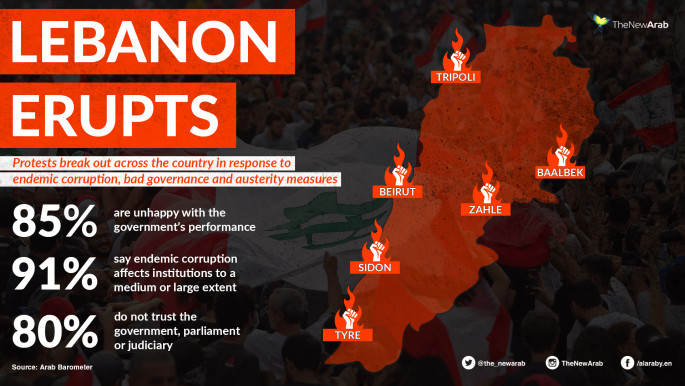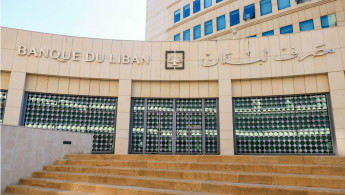Lebanese banks to remain closed amid widespread protests
"As the popular movements in the country continue ... the association announces that banks will remain closed on Monday, Oct. 21," the statement said, according to Lebanon's The Daily Star.
Protesters took to the streets on Sunday despite calls for calm from politicians and dozens of arrests on Friday.
Many waved billowing Lebanese flags and insisted the protests should remain peaceful and non-sectarian.
The demonstrators are demanding a sweeping overhaul of Lebanon's political system, citing grievances ranging from austerity measures to poor infrastructure.
They have blocked main roads and threatened to topple the country's fragile coalition government.
Most Lebanese politicians have uncharacteristically admitted the demonstrations are spontaneous, rather than blaming outside influences.
 |
| Click here to enlarge |
The protests began on Thursday, and banks were ordered to close on Friday and Saturday, along with schools and universities.
More than a quarter of the Lebanese population lives below the poverty line, according to the World Bank.
Many of the country's senior politicians came to prominence during the country's 15-year civil war, which ended in 1990.
The promised austerity moves are essential if Lebanon is to unlock $11 billion in economic assistance pledged by international donors last year.
Growth has plummeted in recent years, with political deadlock compounded by the impact of eight years of war in neighbouring Syria.
Lebanon's public debt stands at around $86 billion - more than 150 percent of gross domestic product - according to the finance ministry.
Follow us on Twitter: @The_NewArab





 Follow the Middle East's top stories in English at The New Arab on Google News
Follow the Middle East's top stories in English at The New Arab on Google News

![Israeli forces ordered bombed Gaza's Jabalia, ordering residents to leave [Getty]](/sites/default/files/styles/image_330x185/public/2176418030.jpeg?h=a5f2f23a&itok=_YGZaP1z)
